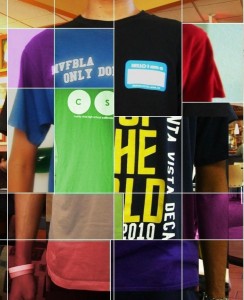
The National Technological Honor Society, or NTHS for short, is a business and technology club recently established on campus. It focuses on applying business concepts in the real world, especially in a technological setting. Despite having been on campus for only a year, it is already well publicized and is attracting competitors from both FBLA and DECA.
With the twin giants of FBLA and DECA already vigorously campaigning for membership and taking swipes at each other, the emergence of NTHS raises a question: are there too many similar clubs around campus? Is competition hurting school spirit? Should students stop creating new clubs and join each other in brotherly love and unity?
Of course not. That would be Communism.
The Communists want us to abandon rivalries to work toward “the greater good,” but we all know that such a system never works. Without competition and the fear of becoming redundant, people grow lazy and everybody suffers. As Americans, we cannot stand for this.
Competition is the backbone of American society, and while some may say competition amongst similar clubs detracts from the school’s sense of community spirit and forces club to waste time and resources squabbling, it is competition that forces clubs to go above and beyond expectation in order to attract members.
Large clubs with no competition hold monopolies over students and activities, but such power discourages innovation and creativity. While there may be few concrete differences between Octagon and Interact, for example, it is the presence of the other that forces each to be as outgoing as possible. It is under duress that clubs are forced to innovate, find unique angles to attract membership, and do their best work.
However, does competition among similar clubs polarize the campus? Somewhat paradoxically, club rivalries both divide the campus and unify it. Students feel a much stronger camaraderie with members of their own clubs when there is competition. A communal desire to “beat the enemy” brings students together. Not only does competition encourage creativity and diversity, it creates stronger inter-student relationships as well.
Clubs like NTHS should be applauded not despite their similarities to other clubs, but because of them. Rivalry between clubs can strengthen and create a better school community, so go out there and make a club, even if it serves the same function as an existing one.
Remember to name it something different, though.







